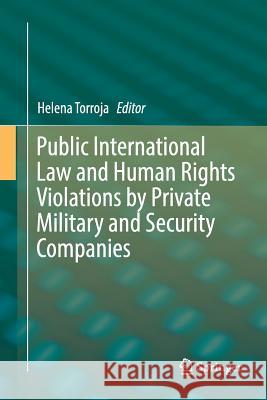Public International Law and Human Rights Violations by Private Military and Security Companies » książka
topmenu
Public International Law and Human Rights Violations by Private Military and Security Companies
ISBN-13: 9783319881751 / Angielski / Miękka / 2018 / 158 str.
Kategorie:
Kategorie BISAC:
Wydawca:
Springer
Język:
Angielski
ISBN-13:
9783319881751
Rok wydania:
2018
Wydanie:
Softcover Repri
Ilość stron:
158
Waga:
0.24 kg
Wymiary:
23.39 x 15.6 x 0.91
Oprawa:
Miękka
Wolumenów:
01
Dodatkowe informacje:
Wydanie ilustrowane











